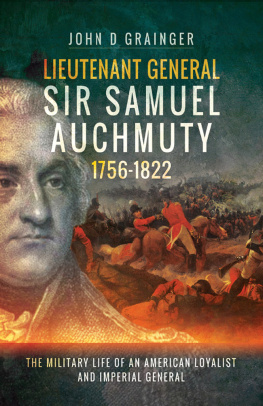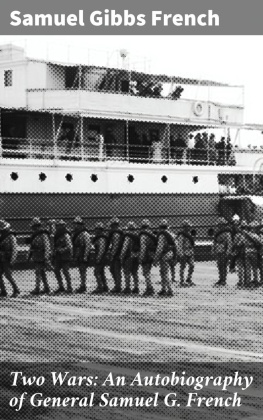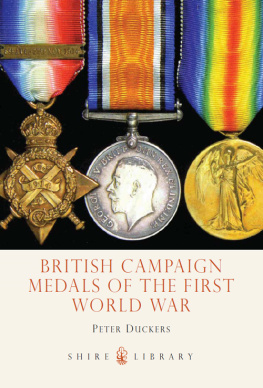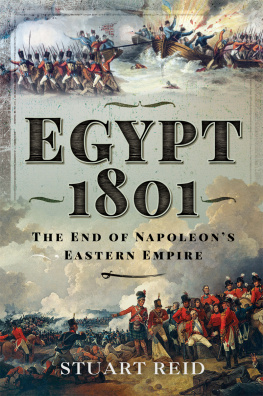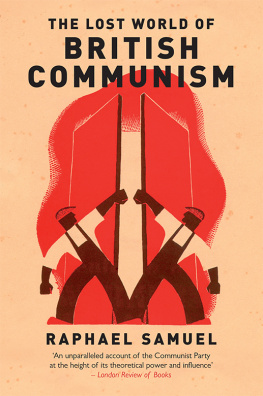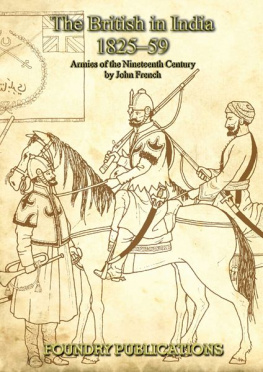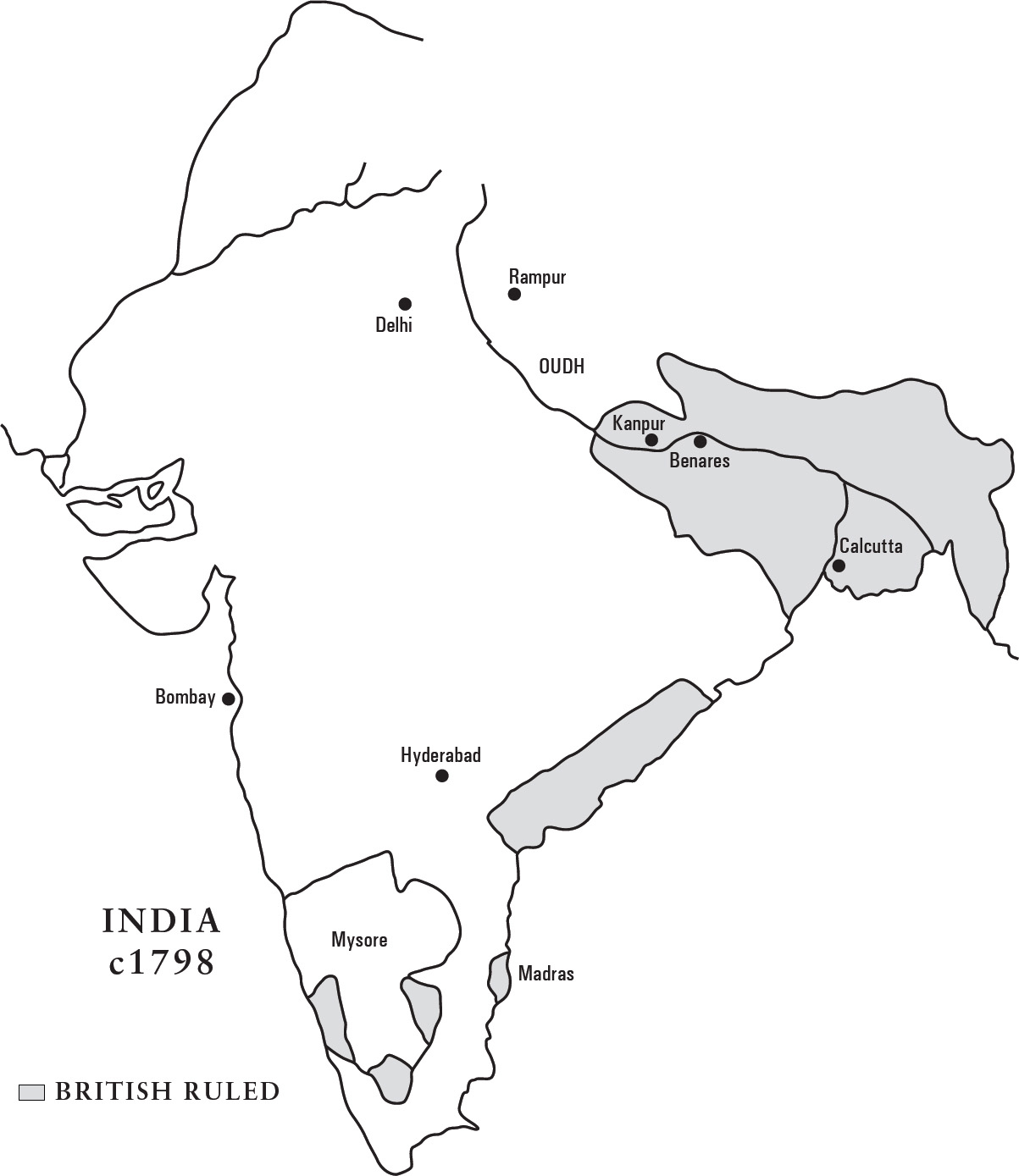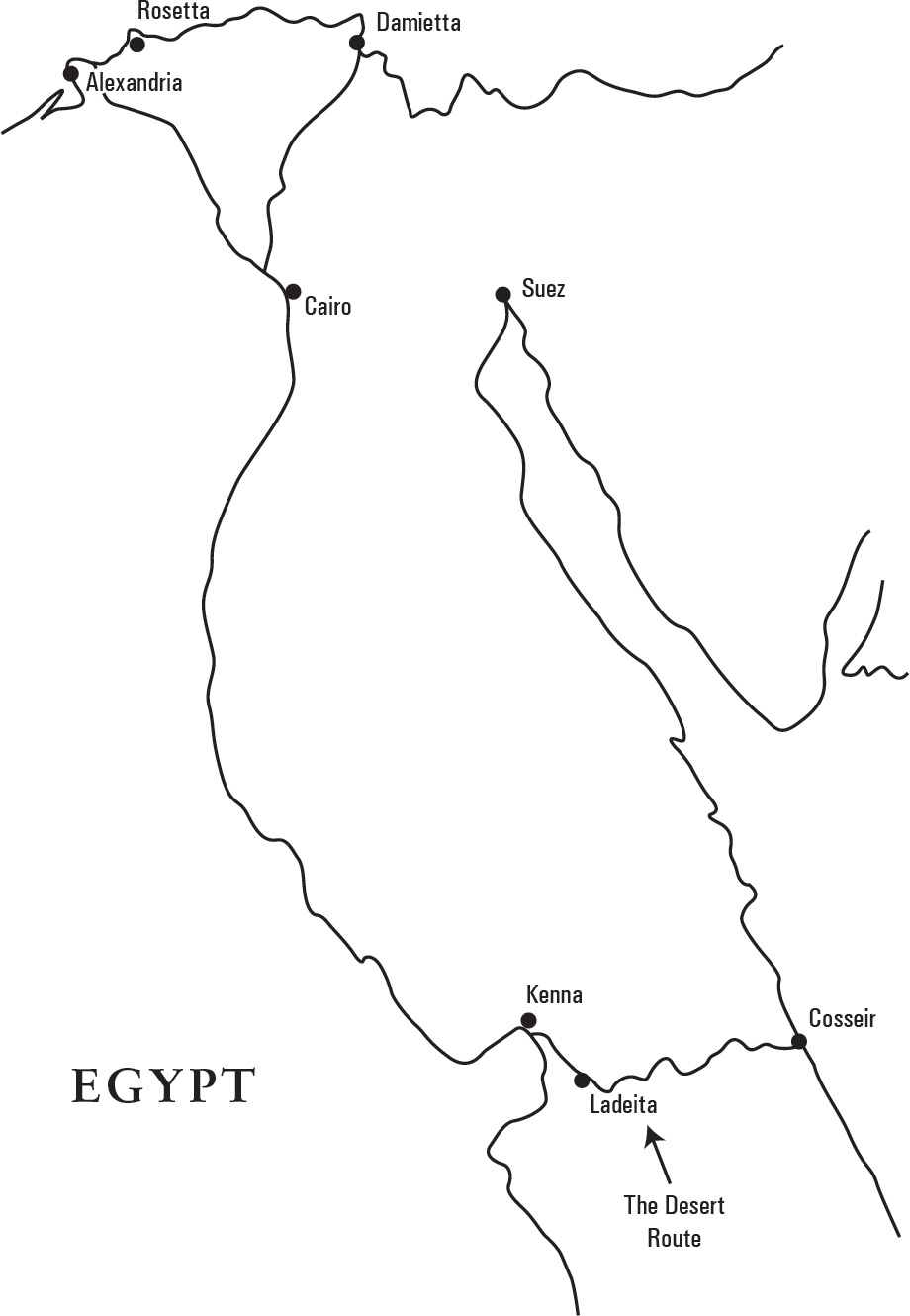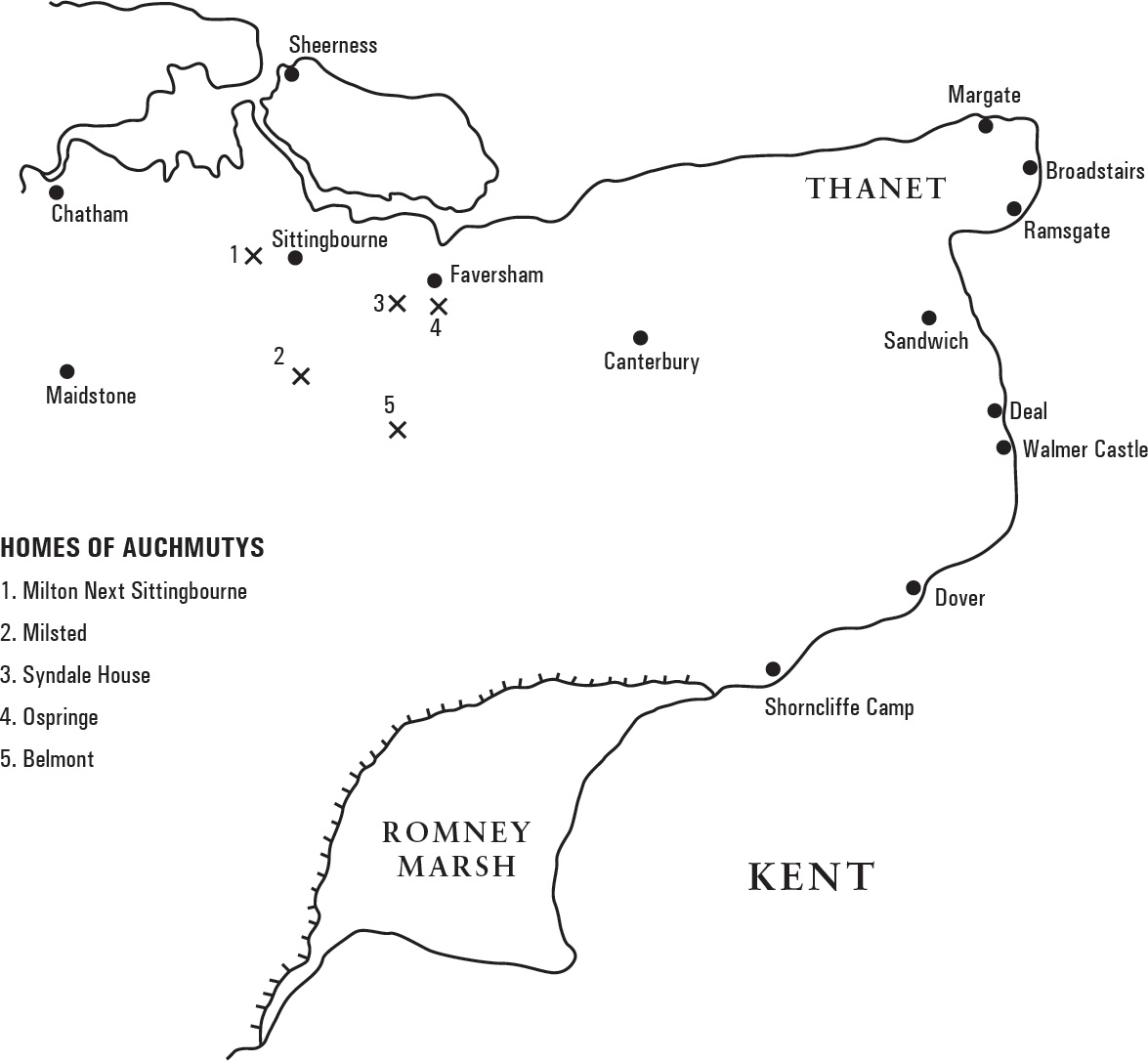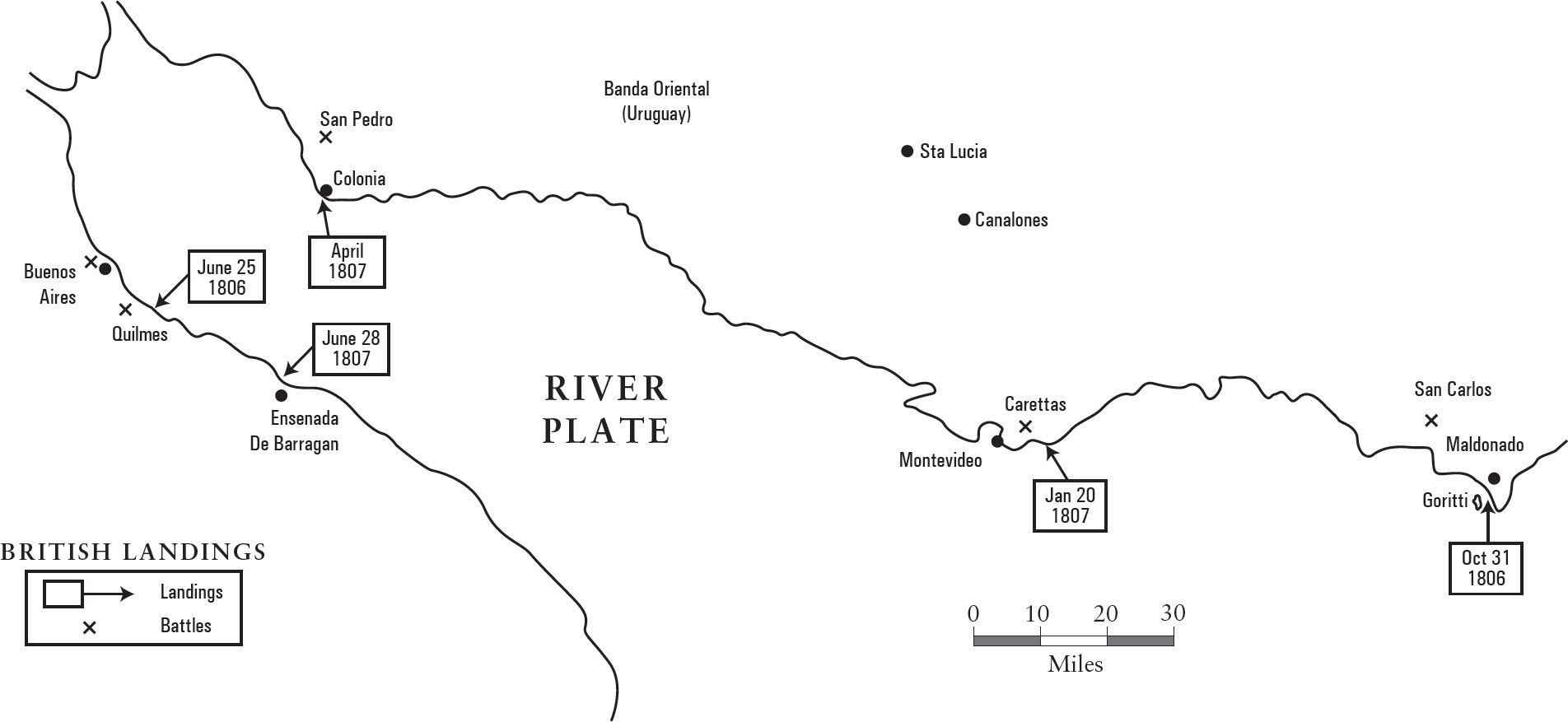Pagebreaks of the print version

Lieutenant General Sir Samuel Auchmuty 17561822
Lieutenant General Sir Samuel Auchmuty 17561822
The Military Life of an American Loyalist and Imperial General
John D Grainger
First published in Great Britain in 2018
by Pen & Sword Military
An imprint of Pen & Sword Books Limited
47 Church Street
Barnsley
South Yorkshire
S70 2AS
Copyright John D Grainger 2018
ISBN 978 1 52673 092 3
eISBN 978 1 52673 093 0
Mobi ISBN 978 1 52673 094 7
The right of John D Grainger to be identified as Author of this Work has been asserted by him in accordance with the Copyright, Designs and Patents Act 1988.
A CIP catalogue record for this book is
available from the British Library
All rights reserved. No part of this book may be reproduced or transmitted in any form or by any means, electronic or mechanical including photocopying, recording or by any information storage and retrieval system, without permission from the Publisher in writing.
Pen & Sword Books Limited incorporates the imprints of Atlas, Archaeology, Aviation, Discovery, Family History, Fiction, History, Maritime, Military, Military Classics, Politics, Select, Transport, True Crime, Air World, Frontline Publishing, Leo Cooper, Remember When, Seaforth Publishing, The Praetorian Press, Wharncliffe Local History, Wharncliffe Transport, Wharncliffe True Crime and White Owl.
For a complete list of Pen & Sword titles please contact
PEN & SWORD BOOKS LIMITED
47 Church Street, Barnsley, South Yorkshire, S70 2AS, England
E-mail:
Website: www.pen-and-sword.co.uk
Maps
1. Chart The Scattered Family
2. India
3. Egypt
4. Kent
5. River Plate
6. Java
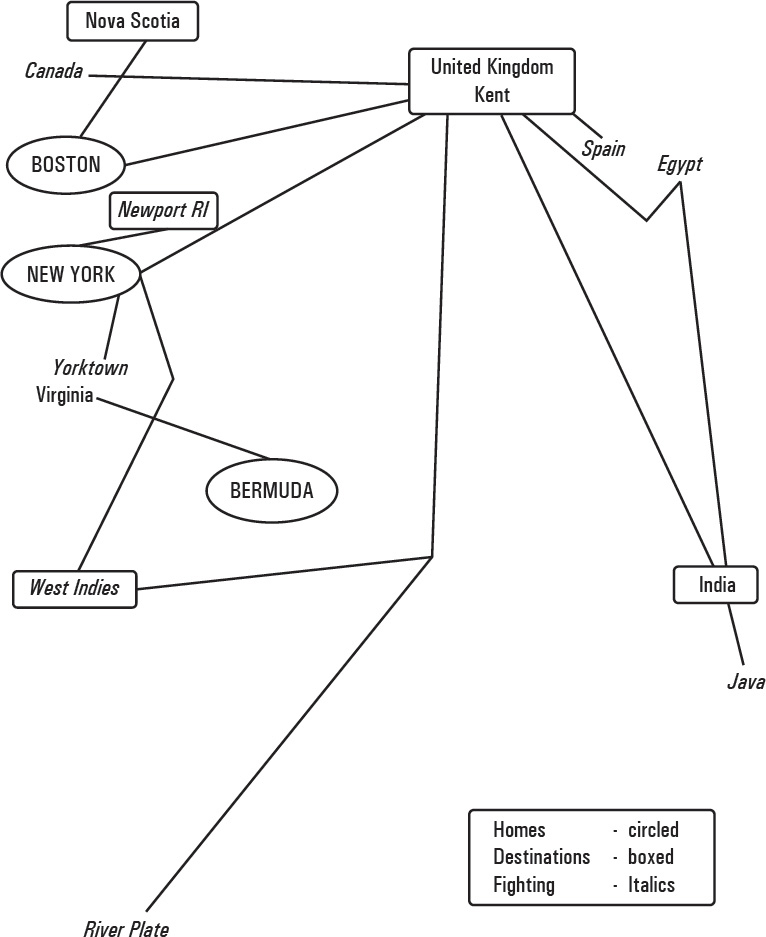
The Scattered Family.
Introduction
S ome years ago I wrote an entry for the New Oxford Dictionary of National Biography on General Sir Samuel Auchmuty. I had first encountered him when researching events in the River Plate in 18068 for a volume of documents for the Navy Records Society. He piqued my interest because of his wide-ranging career as a soldier, and his connection with many of the imperial issues of his time. I have expanded on the Societys volume with a wider account of events at the time in the South Atlantic.
Auchmuty was involved in events in the American colonies in the War of Independence, in India during the decisive expansion of British power from a few coastal forts and the revenues of Bengal to the domination of the whole country, and in several of the military events in Egypt, Kent, and Java during the Revolutionary and Napoleonic wars. And yet he scarcely rates more than a mention in any of the books describing these events and times. In each case he appears to be overshadowed by another by Cornwallis in India, by Baird in Egypt, by Whitelocke in South America, by Minto and Raffles in Java and yet he was the efficient agent of action in many of these cases, notably in South America and Java. He rose to be the Military Secretary to the Commander-in-Chief in his first time in India, he was the Adjutant General in Egypt, he was the one successful and victorious commander in the River Plate expedition, he was the Commander-in-Chief at Madras, and the conqueror of Java. In too many of these he has been written out of the account. In each case someone else either took the blame or the credit.
Deeper investigation into his life and career also reveals that he had extensive connections with other families in the new United States and in Britain, and in the latter case many of them were military and naval families and deeply involved in the history of the British Empire. His family connections therefore became another aspect of his life which merited investigation.
Then there is the general trajectory of his life and career, from the British defeat in North America and the loss of the major section of the British Empire, to the acquisition of the next empire in Asia soon after; and to the curious set of imperial policies between 1793 and 1815 by which large parts of the world were conquered in India, in Indonesia, Egypt, Buenos Aires, West Indian islands, the Cape of Good Hope and other places in many of which Auchmuty was involved, only to see them in many cases returned to the original colonisers or simply abandoned at the end of the French wars. Such a career is certainly of interest as a link between the two empires and general British imperial policy.
Not only that but his origins in New York and his actions in 17767 marked him as an active Loyalist, though he appears scarcely at all in the accounts of those people. Further, he rose to the rank of General in the British Army, and so was the most successful of all the Loyalists; and yet his life and achievements are ignored; histories of the Loyalists are generally more inclined to dwell on the unpleasant experiences of the Loyalists in their home colonies and their difficulties after their expulsion than on one of them who adapted well to his new life and made a success of it.
One obvious reason for the general lack of interest in the man and his career apart from his apparent secondary role in many of the events is that he did not leave a set of papers which could be edited by a sympathetic relative or found after his death and deposited in a library for consultation by interested historians. And yet there remain plenty of letters to him and by him, though to be sure they are mainly official rather than personal. He was by no means an outstanding, boisterous, or notorious character, though he does seem to have evoked strong feelings of like and loyalty among his friends and relations, and among his soldiers. He was a Loyalist, and given his work, he may be defined above all as an Imperial Loyalist.
Auchmutys life thus has a particular interest in itself, one which is worth resurrecting from the apparent concerted efforts of contemporaries and succeeding historians to conceal it. This is a man who won battles for the empire to which he was conspicuously loyal, only to see his victories thrown away. The plan of the following work, therefore, consists of two parallels: in the first the mans career is examined, what he did and where he went; in the second a wider view is taken, in which an examination is undertaken of the effects of his career and achievements. So, to take one example, his military activities in South America, where he conquered Montevideo but was then superseded by an incompetent commander-in-chief, was one of the major factors in bringing about the independence of Spanish America from its home government. So we have the irony of a man whose life seems to have been predicated on imperial loyalty apparently promoting the break-up of another empire. There is a third parallel in all this and that is to include the activities and achievements of other members of his family and his connections, many of whom were also Loyalists.

